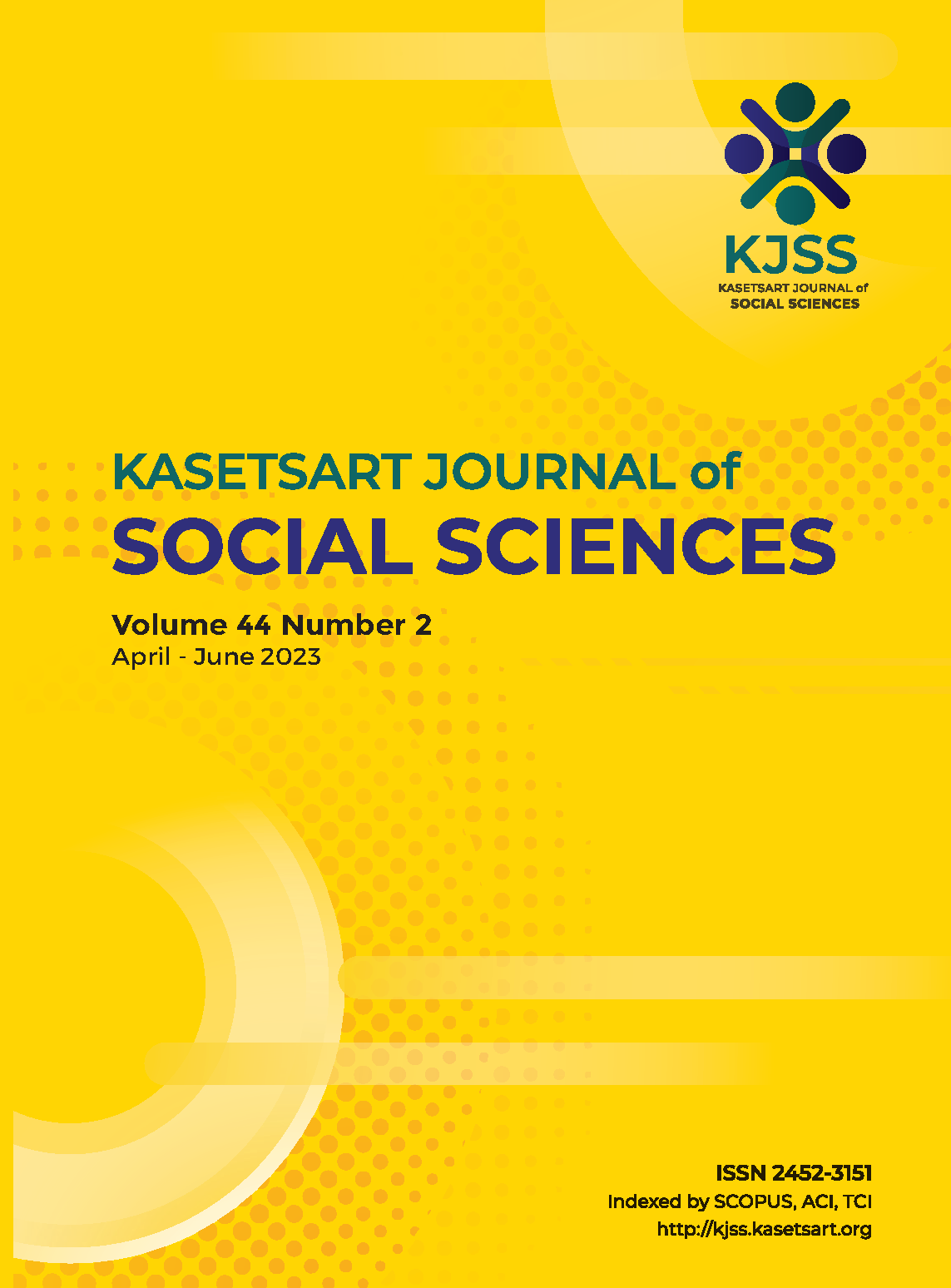The future of Thailand’s international logistics: A literature review
คำสำคัญ:
import-export, international logistics, research opportunities, supply chain efficiency, Thai business entrepreneurบทคัดย่อ
International logistics management in Thailand has faced chronic problems, which have affected the competitiveness of Thailand in the world market. This research, therefore, examines the overview, trends, issues, and solutions for the same. The research design follows the PRISMA concept to select and analyze extant articles. Inclusion criteria were articles mainly in TCI 1, and 2 databases, using keywords searched such as “international logistics”, “international trade”, “border trade”, “international transport”, and “import-export”. A total of 82 articles were obtained for full-scale research and analyzed using content analysis and thematic analysis methods. We found that the authors mainly used the interview, questionnaire, and literature review methods to observe a single unit in the supply chain, such as a manufacturer or an export agent. Commonly, Thai business entrepreneurs have inadequate knowledge of import-export, legal matters, customs formalities, foreign languages, and information technology. During this decade (the late 2010s to the early 2020s), government interventions have increased difficulties for businesses due to the following reasons: (1) entering the ASEAN Economic Community; (2) border trade; (3) inconsistencies between outdated Thai laws and the Incoterms tradition; and (4) transparency. Moreover, the Thai government sector needs restructuring to be more effective to meet global standards, which will solve these issues. Thus, this is the most critical area for future research. Positive changes will enable more qualified private sector operations throughout the supply chain, allowing smoother goods, information, and finance flows.
ดาวน์โหลด
เผยแพร่แล้ว
รูปแบบการอ้างอิง
ฉบับ
ประเภทบทความ
สัญญาอนุญาต

อนุญาตภายใต้เงื่อนไข Creative Commons Attribution-NonCommercial-NoDerivatives 4.0 International License.
This is an open access article under the CC BY-NC-ND license http://creativecommons.org/licenses/by-nc-nd/4.0/










